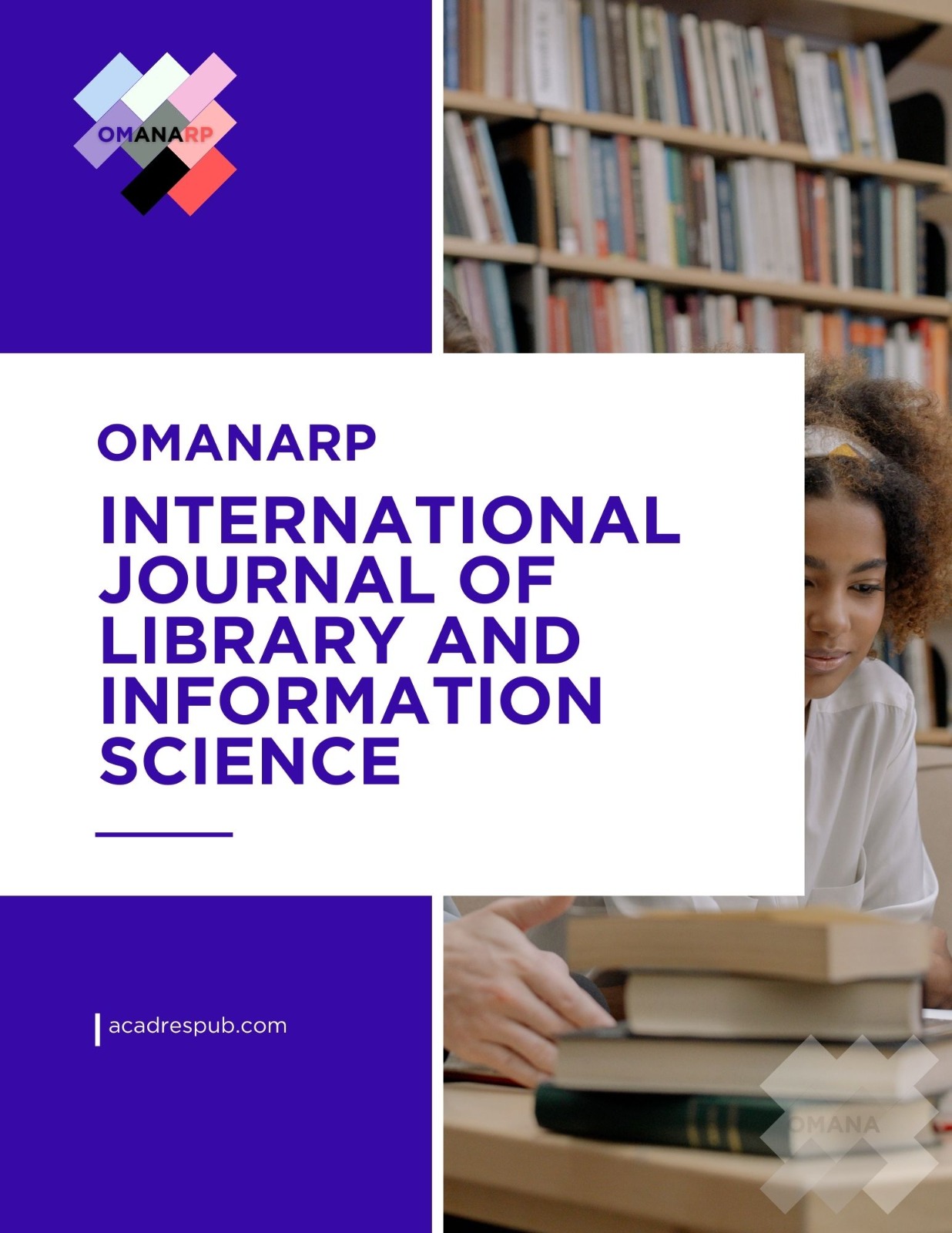STUDENTS’ USE OF ELETRONIC INFORMATION RESOURCES AT ADMIRALTY UNIVERSITY OF NIGERIA LIBRARY
Abstract
Electronic information resources (EIRs) constitute indispensable academic assets that facilitate scholarly achievement through enhanced access to quality information and increased learning flexibility. This investigation examined EIRs utilization patterns among undergraduate students at Admiralty University of Nigeria, employing a descriptive survey research design to address four specific objectives and corresponding research questions. The study population was selected through random sampling techniques, ensuring representative inclusion across academic disciplines. Data collection was accomplished through a meticulously designed self-structured questionnaire, with 1,200 instruments distributed and 1,180 completed responses obtained, yielding a 98.3% response rate. Quantitative analysis was performed using descriptive statistics presented in tabular format with percentage distributions. Key findings revealed that respondents predominantly utilized EIRs for core academic activities: research endeavors (87%), coursework completion (92%), current awareness (78%), and scholarly collaboration (65%). The study identified three significant impediments to optimal EIRs utilization: Financial limitations (reported by 82% of respondents); Unreliable electrical infrastructure (76%); inadequate internet connectivity (68%). These constraints substantially hinder effective resource engagement, as evidenced by the underutilization of specialized databases and electronic journals. Furthermore, the research demonstrated a critical need for enhanced awareness initiatives regarding existing library resources, with only 38% of students demonstrating comprehensive knowledge of available EIRs. The findings underscore the necessity for substantial governmental investment in university funding to ensure adequate provision of technological infrastructure and digital collections. Strategic recommendations include: Implementation of mandatory information literacy programs; Expansion of discipline-specific database subscriptions and development of sustainable infrastructure maintenance protocols. This study contributes to the growing body of knowledge regarding digital resource utilization in Nigerian tertiary institutions, providing empirical evidence to inform institutional policy and practice. The results emphasize the transformative potential of EIRs in enhancing academic outcomes when supported by appropriate infrastructure, user education, and sustained funding commitments.
Downloads

Downloads
Published
Issue
Section
License
Copyright (c) 2025 Adaora Maudline Orakpor, Bibiana Obiageli Muokebe, Oluchi Bridget Ibeh (PhD, CLN), Obianuju Maureen Agwuna (Ph.D), Chiamaka Gloria Ugheru (Author)

This work is licensed under a Creative Commons Attribution-NonCommercial 4.0 International License.





